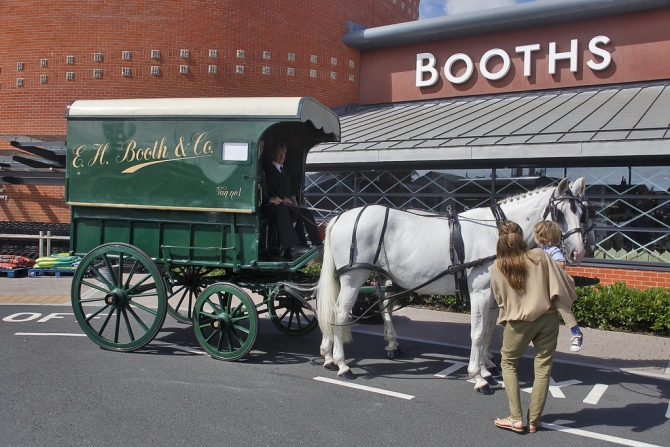After a year of off-loading a number of its assets, Development Securities has reported an impressive jump in its earnings. Pre-tax profits for the London-based group have risen from £792,000 to £19.5m.

Development Securities £30m Hale Barns scheme will include 15 retail units anchored by Booths Supermarket
“The strong improvement in our performance during the year was driven by continued significant gains from within our development and trading portfolio and an increase in the value of our regional investment portfolio,” explained chief executive Michael Marx. Trading for the year ending in February was down 20 per cent to £79.3m largely, he said, because the focus had been on slimming down the company portfolio.
In the year to the end of February the group disposed of assets worth £260m, which included its £82m share in Manchester’s Phones 4u Arena and a residential site at Broughton, near Chester, worth £11m. And in the first three months of this year Development Securities has sold off a shopping centre in the Manchester suburb of Chorlton and a retail warehouse at Crewe.
It still has a number of investments in the South East and schemes in North West, including an ongoing project at The Square in Hale Barns and a large mixed-use development at Luneside East in Lancaster.
At Hale Barns, where construction work started in October, the company is financing a £30m scheme to build up to 15 retail units — including a new flagship Booths supermarket — a cafe, and 24 luxury one- and two-bedroom apartments. Its joint partnership St George’s Quay project at Luneside East is nearing completion and will provide a mix of business and office space and homes.
“We have an extensive portfolio of projects that is set to deliver strong gains in the coming years,” Marx added. “With the UK economy continuing to strengthen and some enhanced liquidity returning to real estate markets outside London, we have accelerated our programme of asset disposals within our investment portfolio.
“This will allow us to recycle capital into further investment opportunities that offer enhanced growth prospects. We are also well positioned to capitalise on further opportunities in those sectors of the market that we have selected for value creation, and to deliver enhanced shareholder returns.”
One area the company will not be touching again is central London. It has previously sunk £69.8m into residential and commercial projects in London and the South East, but will not touch prime central London which, claims Marx, has become “too hot” to handle.
“In our world of quantitative easing, there is a bubble and it will end in the way that all bubbles end,” he warned. “London is far too hot and central London is distorted — and it is not wise to play in distorted markets.”